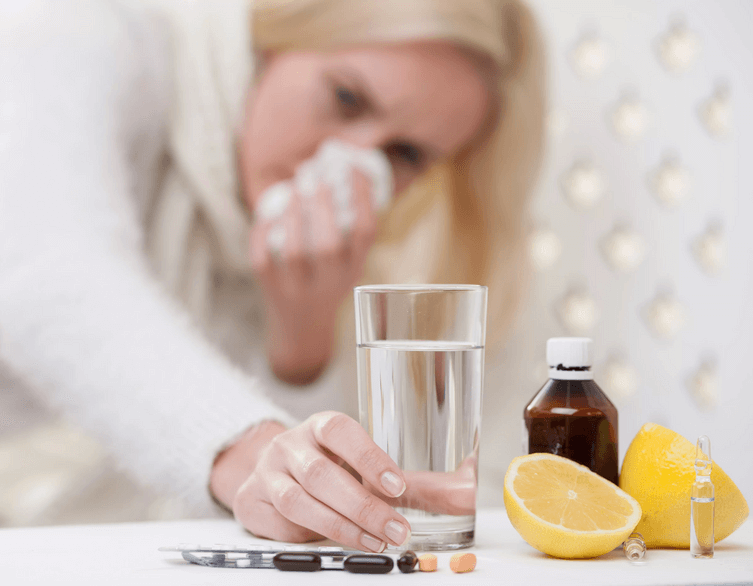A New Flu Wave and Your Trip to Budapest

If you are planning a winter trip to Budapest in 2025–26, you will be arriving in a city that is enjoying its usual festive buzz – Christmas markets, thermal baths, cosy cafés – but is also keeping a close eye on an unusually strong flu season. A new mutation of influenza A (H3N2), known as the K subclade, has already caused a record‑breaking outbreak in Australia, and early signs suggest it is capable of spreading quickly in Europe as well. In Budapest, hospitals and public health experts have already noticed that flu cases started rising earlier than usual, from mid‑November, prompting the city to prepare more actively than in past years.
For visitors, this does not mean Budapest is unsafe or that travel should grind to a halt. It does mean that, just like during a bad flu season at home, you will enjoy your holiday more if you understand what is happening, take sensible precautions and know where to turn if you need medical help. Think of it as another layer of winter planning alongside packing warm clothes and checking opening times.
What Makes This Flu Season Different?
Every year, the composition of the seasonal flu vaccine is decided months in advance, based on the strains circulating in the southern hemisphere. This time, experts now see that the vaccines do not perfectly match the newly dominant K subclade of H3N2. That mismatch does not make the vaccine useless, but it does reduce its effectiveness. Instead of the 60–70 percent protection that many younger adults might expect in a good year, current estimates suggest closer to 30–40 percent protection against serious illness for some age groups.
Best deals of Budapest
In Budapest, hospitals have reacted by planning their intensive‑care capacity earlier than usual. Major institutions such as Szent Imre, Péterfy and Szent János Hospitals have been updating their medicine stocks and vaccine supplies ahead of peak season. Public health authorities especially encourage those in higher‑risk categories – older people, pregnant women and those with chronic conditions – to get vaccinated as soon as possible. For tourists who fall into these groups, it is worth considering vaccination at home before travelling, or, if you will be staying longer in Hungary, asking your accommodation or embassy for up‑to‑date information on local vaccination options.
Staying Healthy While Enjoying Winter in Budapest
The same simple steps that protect locals will also protect you during your stay. Regular, thorough handwashing or the use of hand sanitiser is particularly important when you are using public transport, holding on to tram poles or escalator rails in metro stations. In cold weather, many visitors tend to rush into heated, crowded spaces – cafés, shopping centres, Christmas markets under tents – but flu spreads most easily in exactly these closed, poorly ventilated environments. Whenever possible, choose places that air out regularly, and do not be afraid to sit closer to a door or window if it means fresher air.
Wearing a well‑fitting KN95 or N95 mask in very crowded indoor settings, at stations, in clinics or on packed metro trains is a sensible choice if you want to lower your risk. Budapest’s transport companies already disinfect vehicle interiors and handholds more often during flu peaks, and many staff working in close contact with passengers use masks and gloves. Still, the most important protective step is one you control yourself: if you start to feel unwell, slow down your programme, rest in your accommodation, and avoid pushing on with long sightseeing days while potentially infectious.
How the City Is Preparing Behind the Scenes
Budapest’s municipal authorities are coordinating vaccine distribution and communication between hospitals, clinics and neighbourhood doctors. Semmelweis University’s epidemiology research group publishes regular updates on flu case numbers, and city leaders have strengthened recommendations around staying at home when ill, particularly for those who live with vulnerable relatives. For older residents and people with chronic conditions, free online consultations help reduce the need to sit in waiting rooms when symptoms can be assessed remotely.
At the same time, many employers in Budapest are being encouraged to offer flexible working options during the peak of the season. This may mean more people working from home, fewer packed offices and less crowding in rush hour, all of which indirectly benefit visitors too by easing pressure on public transport. Office buildings are advised to clean shared spaces and meeting rooms several times a day, a routine that is becoming as normal in winter as gritting pavements outside.
Practical Advice for Visitors with Symptoms
If you develop classic flu‑like symptoms during your stay – fever, chills, muscle aches, a dry cough and marked exhaustion – the first and best step is to rest in your hotel or apartment rather than continuing your sightseeing. Most accommodation providers in Budapest are now used to helping guests with basic medical questions, from locating the nearest pharmacy to finding an English‑speaking doctor. Many pharmacies in central districts have staff who can communicate in English and can advise on over‑the‑counter remedies to ease your symptoms.
If your symptoms are severe, you have difficulty breathing, a very high or persistent fever, or you belong to a high‑risk group, you should seek medical advice rather than self‑treating. Your embassy, travel insurer or hotel reception can point you towards private clinics or hospital emergency departments familiar with treating foreign visitors. In all cases, call ahead if possible: explaining your symptoms by phone allows staff to prepare and reduces the time you spend in waiting areas.
Looking Ahead: Travel and Flu Can Co‑Exist
Public health experts in Budapest expect this flu season to be more intense than in many recent years, but they do not anticipate an apocalyptic scenario. With reasonable vaccination rates and everyday hygiene measures, the impact of the K subclade wave can be significantly softened. For travellers, the most realistic attitude is to treat flu much like severe winter weather: it is a factor you should respect and prepare for, but not a reason in itself to cancel a carefully planned visit.
If you are travelling to Budapest in winter 2025–26, a little preparation goes a long way. Consider vaccination if you are in a risk group, pack a small health kit with painkillers, throat lozenges and a thermometer, and add a few masks next to your gloves and scarf. Once in the city, enjoy the outdoor charms – riverside walks, hilltop views, steaming thermal baths in cold air – and ventilated indoor spaces, and give yourself permission to have a slower day if your body asks for it. Budapest’s healthcare system and institutions are preparing for the season; by making a few thoughtful choices, you can do the same and still enjoy the best of the city at its winter brightest.
Related news













